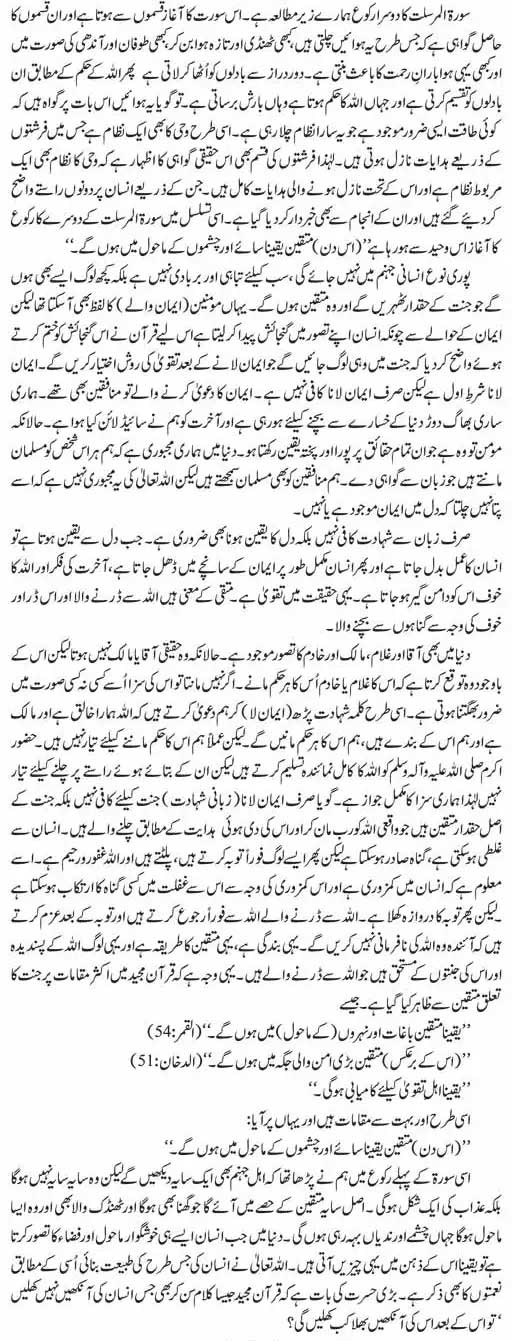
Abiding By The Qur’an And Sunnah
PROPHET Muhammad (peace be upon him) is the best teacher of humanity. He left behind him a legacy in the form of the Qur ‘an and the Sunnah. He stressed the urgent need to hold firmly to these two sources during his farewell speech in the valley of Arafat. If people hold fast to them, they will never go astray.
The teachings he left for us if put into practice in their true spirit and proper way will bring about a happy life in this world and in addition indubitable rewards in the life after death. In this sense, Islam is a religion which cares for the worldly affairs of humanity. The Hereafter is merely a continuation of the worldly life.
It is difficult to portend that man can be saved in the Hereafter without being saved in this world. The safe way is to follow the way shown to us by the Prophet (pbuh). When his wife, Aishah (may Allah be pleased with her), was asked by a companion about the Prophet ‘s daily conduct, she replied that the conduct of the Prophet (pbuh) was the Qur’an which is the guidance from Allah and Muhammad (pbuh) was given authority and mission by Allah to interpret and implement it. That is why his conduct is the highest example of human conduct.
Islam as expounded and practiced by Prophet Muhammad (pbuh) is commonly misunderstood as a religion of rituals only like prayers, fasting, almsgiving and pilgrimage. Thanks to the new developments in the world, Islam is now seen in a wider and proper perspective.
The increased interest in Islamic studies by Muslims and non-Muslims supported by the advanced printing technology and mass media has begun to open the eyes of the world about the true teachings and intrinsic values of Islam.
The Inner Secrets Of Fasting
Know, that in the fast (Sawm) is a special quality that is not found in anything else. And that is its close connection to Allah, such that He says:
‘‘The Fast (Sawm) is for Me and I will reward for it.’’
This connection is enough to show the high status of fasting. Similarly, the Ka’bah is highly dignified due to its close connection to Him, as occurs in His statement:
‘‘And sanctify My House.’’
Indeed, the fast is an excellent act of worship due to two significant reasons:
· It is a secret and hidden action, thus, no one from the creation is able to see it; therefore riya‘ (showing off) cannot enter it.
· It is a means of subjugating the enemies of Allah. This is because the road that the enemies (of Allah) embark upon (in order to misguide the son of Adam) is that of desires. And eating and drinking strengthens the desires. There are many Prophetic traditions that indicate the merits of fasting, and they are well-known
Recommended acts of fasting
The pre-dawn meal (suhoor) and delaying in taking it are preferable, as well as hastening to break the fast and doing so with dates. Generosity in giving in charity is also recommended during Ramadan, as well as doing good deeds and giving more and more in charity. This is in accordance with the Sunnah of the Messenger of Allah (peace be upon him).
It is also recommended to study the Qur‘an and perform I‘tikaf (seclusion for worship) during Ramadan, especially in its last 10 days, as well as exerting in doing good deeds in it. In the two Saheehs, ’Aa‘isha said: ‘‘When the last 10 days (of Ramadan) would come, the Prophet would grid up his loins’’
The scholars have mentioned two views concerning the meaning of ‘girding up his lions.’ The first is that it means the turning away from women.
The second is that it is an expression denoting his eagerness and diligence in doing good deed. They also say that the reason for his making an extra effort the last 10 days of Ramadan was due to his seeking of the Night of al-Qadr (Laylatul-Qadr).
Inner secrets of fasting
There are three levels of fasting, the general fast, the specific fast and the more specific fast. As for the general fast, it is the restraining of one’s stomach and private parts from fulfilling their desires.
The specific fast is the refraining of ones gaze, tongue, hands, feet, hearing and eyes, as well as the rest of one’s body parts from committing sinful acts. As for the more specific fast, it is the heart’s abstention from its yearning for the worldly objects and the thoughts which distance one away from Allah, as well as its (the heart’s) abstention from all the things that Allah has placed at the same level.
Among the characteristics of the specific fast is that one lowers his gaze and safeguards his tongue from the repulsive speech that is forbidden, disliked, or which has no benefit, as well as controlling the rest of his body parts. As is mentioned in a Hadith by Al-Bukhari: ‘‘Whosoever does not abandon false speech and acting upon it, Allah is not in need of his giving up food and drink.’’
Another characteristic of the specific fast is that one does not overfill oneself with food during the night. Instead, he eats in due measure, for indeed, the son of Adam does not fill a vessel more evil than his stomach. If he were to eat his fill during the first part of the night, he would not make good use of the remainder of the night.
In the same way, if he eats to his fill for suhoor, he does make good use of himself until the afternoon. This is because excessive eating breeds laziness and lethargy.
Therefore, the objective of fasting is lost due to one’s excessive in eating, for what is indeed intended by the fast, is that one savours the taste of hunger and readily shuns his carnal desires.
Muslim Character As It Should Be
MUSLIMS today are associated with terror, oppression, extremeness and harshness. Unfortunately due to the actions of a few, a huge misrepresentation of who a Muslim is and what the word stands for has developed.
To understand its right meaning, we should look into the life of Muhammad (peace is upon him). Several Muslims exert their utmost efforts to follow the Prophet (peace be upon him), but as fallible mortals, we all fall short.
If a group of Muslims cause terror around the globe by indiscriminately killing Muslims and non-Muslims and justify their actions by misquoting and misconstruing the verses of the Qur’an, is it fair to label all Muslims as terrorists? Take the example of a father who beats his children. Because of one such father, do we label all fathers as child-beaters? We cannot judge Islam by the people, we judge it by the Qur’an and the traditions of Prophet Muhammad (peace be upon him).
A Muslim is someone who firstly believes in and submits to Allah, and obeys His Messenger. He understands and attests to the five pillars of Islam. Understanding monotheism and having the correct belief is the most important of all.
As for the character, a Muslim has to be honest and truthful. The Prophet (peace be upon him) said “Three things are the sign of the hypocrite: when he speaks he tells lies, when he promises he breaks it and when he is trusted he proves to be dishonest.” (Al-Bukhari, Eng. Trans. 1/31/no.32 and Muslim, Eng. Trans. 1/40/no.112). We should ask ourselves: Do we fall into these categories or are we safe from them?
A Muslim is expected to be gentle. Gentleness spreads love and unites people. The Prophet (peace be upon him) said “Indeed Allah is gentle and loves gentleness, and gives due to gentleness that which He does not give to harshness. (Ibn Majah, no. 3688)
A Muslim should also be quick to forgive others. Allah said in the Qur’an:
“And march forth in the way (which leads to) forgiveness from your Lord, and for Paradise as wide as are the heavens and the earth, prepared for Al-Muttaqun (the pious).
Those who spend (in Allah’s cause) in prosperity and in adversity, who repress anger, and who pardon men; verily, Allah loves Al-Muhsinun (the gooddoers).” (Qur’an, 3:133-134)
Worthy to mention here is an example of the Prophet’s kindness and forgiveness:
Before migration, when Prophet Muhammad (peace be upon him) was living in Makkah, an old woman would throw rubbish on him whenever he passed by her house. The Prophet (peace be upon him) would silently pass by that house everyday, without expressing any anger or annoyance. The old woman, one day, fell ill. The Prophet (peace be upon him) not finding his usual greetings, enquired about the woman’s well-being by visiting her and if he could in any way help her.
The old woman was greatly moved by this kindness. The example of Prophet Muhammad (peace be upon him) made her understand that he was truly the Prophet of Allah and that Islam was the true religion. She accepted Islam at once.
As Muslims, we should try our utmost to be a proper representative of Islam. We should portray the message brought by the Prophet (peace be upon him). We should always look at ourselves first before judging others.
Taqwa Ikhtiyar Karein

Cure For Arrogance
In continuation of the earlier topic “Hues of Arrogance” here are Islamic remedies for this disease of the heart with the steps one can take to develop humility towards Allah and His creation to stem the disease of arrogance and to increase humility:
Know Allah
What has knowing Allah got to do with arrogance? Everything. The one who truly recognizes his Creator, and learns about His exalted names and attributes, embraces reality. He knows with conviction how great his Lord is, and how absolutely insignificant his own self is.
He knows that Allah created him, fashioned him, brought him into this world, gave him sustenance and bestowed upon him strength after the frailty of infancy and childhood. Allah has revealed about Himself in the Qur’an and once someone truly knows Allah, he cannot harbor arrogance in his heart for long.
Allah’s signs
The most powerful people who ever lived – with extraordinary physical or mental strength – all become weak with the passage of time. Great scholars or professors can one day suffer from amnesia or Alzheimer’s. Even the man who played the fictional “Superman” – the idol of many young boys – suffered a crippling fall, withered and died before their very eyes.
Allah’s Messenger (peace be upon him) said, “Allah looks neither at your figures, nor at your outward appearance, but He looks at your hearts and your deeds.” (Sahih Muslim)
This should remind us that each and every little blessing we have – from our looks, to our wealth, to our abilities and talents – is solely from Allah. Our achievements are not the product of our own selves, they are a result of whatever talent Allah blessed us with combined with the effort He guided us to undertake. Not only that, He can take them away whenever He wants, even in a split second.
A beauty queen can lose her perfect body and beauty to a disease (just a passing reference to the recent death of a 20-year-old Brazilian model, who died within two months of contracting a mysterious disease).
A strong wrestler might suffer an accident that could render him invalid. Taking lessons from these will In Sha Allah bring humility in us.
“Did they then feel secure against the Plan of Allah. None feels secure from the Plan of Allah except the people who are the losers.” (Qur’an, 7:99)
Hues Of Arrogance
‘ARROGANT? Who, me?! Never. I’m a Muslim.’
Any Muslim who has studied Qur’an and Sunnah in depth and detail would strive to stay away from one of the most disliked vices: Arrogance. Be it vanity, conceit, standoffishness, haughtiness, acting holier-than-thou, or “high-and-mighty” – they are careful of being tainted by any color from the spectrum of arrogance or Kibr. These negative personality traits were present in those on whom Allah’s wrath descended in the past, and about whom the followers of Islam have been duly warned in the Qur’an and Sunnah.
The crux of the matter is: how do we check ourselves in practical life if we are becoming arrogant or not? What actions, qualities or behavior constitutes the hallmarks of “arrogance”? It is so much easier to nod our heads in unison when listening to warnings targeted at arrogant individuals at a lecture, than to actually purge ourselves from traces of arrogance within our own behavior; in our social interactions; in our dealings with family members; in our very intimate thoughts and feelings. What can we do to hold up a magnifying glass to our own face, in order to pick out the microscopic, self-emulating zits that are missed by that first cursory glance at our personalities?
Rejecting Islam
The Prophet (peace be upon him) said: “No one who has an atom’s-weight of arrogance in his heart will enter Paradise.”
A man said, “O Messenger of Allah, what if a man likes his clothes and his shoes to look good?”
He said, “Allah is beautiful and He loves beauty. Arrogance means rejecting the truth and looking down on people.” (Sahih Muslim)
Rejecting any part of the Qur’an or Prophetic narrations silently (i.e. not saying anything outwardly, but obstinately refusing to obey Allah’s commands over time) or by open antagonism – verbally declaring Kufr and rejection – is indicative of arrogance. Pharaoh, who is repeatedly quoted in the Qur’an for his arrogance, said: “O my people! Is not mine the dominion of Egypt, and these rivers flowing underneath me. See you not then? Am I not better than this one (Moses), who is Mahin (i.e. has no honor nor any respect, and is weak and despicable) and can scarcely express himself clearly?” (Qur’an, 43:51-52)
“O chiefs! I know not that you have an ilah (a god) other than me…” (Qur’an, 28:38)
“I am your lord, most high.” (Qur’an, 79:24)
Our Goal In Life
All Praise is for Allah, and peace and blessings of Allah be upon His beloved Messenger Muhammad sallallahu alayhi wa sallam.
We are grateful to Allah subhana wa ta’ala for giving us the opportunity to sit in His remembrance. For truly it is a great favor indeed that despite all worldly distractions He has brought us to His House (mosque). Then sat us in His dhikr. And by sitting in His dhikr Allah subhana wa ta’ala helps us to get closer to Him and for every Muslim the true goal in life is to attain the pleasure of Allah subhana wa ta’ala.
Apart from that we all have a common interest, that we would all like to love Allah subhana wa ta’ala and we ourselves would like to be loved by our Lord Most High.
Now is it not strange that a person has a certain desire or goal in life but doesn’t make any effort to achieve it?
Surely it is a basic rule in this world that when a person has a particular interest or hobby, he does not waste any time. He spends most of his time in an activity that will help him achieve his goal. For example if a person wants to be good at a particular sport, he would play that sport very regularly and often spend a lot of money and time on trying to achieve his objective.
So truly if our objective in life is to be loved by Allah, and we also know that this can happen through doing His dhikr in abundance, then why is it that we not make ourselves busy in His remembrance?
The formula for achieving this is straightforward, Allah subhana wa ta’ala has stated in the Qur’an ‘Fadhkurooni adhkurkum’ (Remember Me and I will remember you). It is stated in a Hadeeth that Allah remembers His servant as soon as he remembers Allah.
Subhan Allah, can you imagine the Lord Most High, The creator of the Heavens and the Earth remembering you? Indeed that is great thing. And this method for achieving our objective is so easy that it almost defies belief.
In a Hadeeth transmitted by Bukhari it is stated that Abu Hurayrah radhiallah anhu narrated that Allah’s Messenger sallallahu alayhi wa sallam said “Allah Almighty says, ‘I am towards My servant as he is towards Me. I am with him when he remembers Me. If he remembers Me alone, I remember him alone. If he remembers Me in a gathering, I remember him in a gathering better than it.”
Kon Konsi Dua Nahi Mangni Chahiye




Allah’s Attribute Of Forgiveness
This is the first of seven surahs that all begin with the two separate letters, Ha. Mim. In one of these seven surahs three other separate letters, Ayn Sin Qaf, are added after the initial two. Some surahs start with these separate letters, thereby indicating that the Qur’an, which defies imitation, is composed of such letters which the Arabs used every day, orally and in writing, in their language.
This is followed by a statement of a fact that is frequently used in Makkan surahs given these seek to establish faith: the fact of revelation: “The revelation of this book is from God, the Almighty, the All-Knowing.” A number of God’s attributes are then stated. These are directly relevant to the subject matter of the surah and the issues it discusses: “the Almighty, the All-Knowing, who forgives sins, accepts repentance, is severe in retribution and limitless in bounty. There is no deity other than Him. To Him is the ultimate return.” (Verses 2-3) In fact all the issues the surah raises relate to these attributes of God, powerfully stated at the outset to give an impression that they are well and firmly established.
Limitless in His glory, God outlines to His servants these of His attributes that have a profound effect on their lives. Thus, He raises their hopes and fears, making them feel that they are within His grasp and can never elude what He wills. The attributes highlighted here are:
The Almighty: He is overpowering. No one can get the better of Him, while He has power over all things. When He decides something, nothing can stop this from occurring.
The All-Knowing: He conducts all affairs on the basis of perfect knowledge. Nothing is hidden from Him.
He forgives sins: He grants His forgiveness on the basis of His knowledge about those servants who deserve to be forgiven.
He accepts repentance: When sinners repent, He accepts their repentance and bestows His grace on them, opening the door for them to address Him directly.
He is severe in retribution: He punishes the arrogant who are hardened in sin, unwilling to show regret or seek forgiveness.
Limitless in bounty: He bestows His limitless grace, multiplies the reward for good deeds and gives without reckoning.
There is no deity other than Him: He alone is the Godhead who has no partners or equals.
To Him is the ultimate return: None can evade meeting Him or escape accountability.
These attributes provide a clear outline of the interrelation between Him and His servants. They should be clear in their feelings, thoughts and understanding of how to deal with Him. Then, they will have no ambiguity about what pleases Him or incurs His anger.
In the past, those who held beliefs based on legends were at a loss in knowing how to deal with their deities, because they had no clear idea of what pleased or angered them. They pictured them as impulsive, having no clear aim or purpose, demonstrating violent reactions and causing people much worry and confusion. They resorted to charms and sacrifices in their attempts to please such deities, but could only guess about whether they were satisfied or not. By contrast, Islam provides a very clear concept, establishing a relationship between people and their true Lord, outlining His attributes, defining His will, and instructing them on how to draw closer to Him, fear His punishment and pray for His mercy, always following a straight and clear path.
Having established the truth of God’s oneness and His divine attributes, the surah makes clear that this truth is accepted by all creatures. It is, in fact, firmly rooted in their nature and directly related to the nature of the universe. All creation is entirely convinced by the signs testifying to God’s oneness. Only the unbelievers dispute these signs and argue about God’s revelations. Thus they are a class apart, choosing to be at odds with the universe and all other creatures within it.
“None but the unbelievers dispute God’s revelations.”
Throughout the entire expanse of the universe, only the unbelievers stand apart, deviating from the true path. In relation to the whole universe, they are weaker and less significant than an ant in relation to planet earth. When they stand on their own disputing God’s revelations and denying His signs, the rest of the universe declares its acceptance of Him and recognizes His oneness, deriving its strength from Him. With their odd attitude, the unbelievers’ fate is sealed, no matter how powerful, affluent and mighty they may appear to be: “Let it not deceive you that they seem to be able to do as they please on earth.” They may be able to move about, gather wealth, enjoy their power and revel in easy living. However, they are ultimately doomed. The battle, if there could ever be a battle between them and the Creator of the universe, will lead to its inevitable end.
-by Adil Salahi

